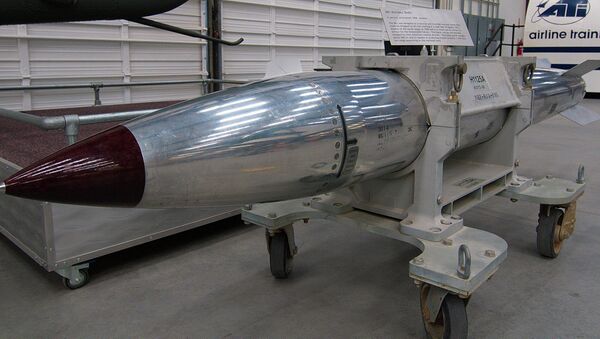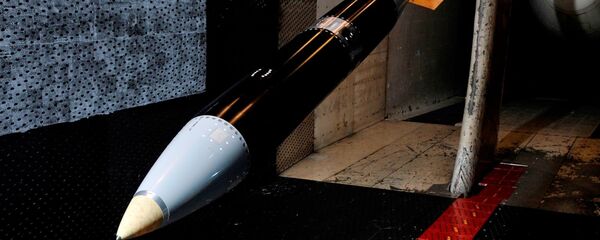A report from the National Nuclear Security Administration (NNSA) estimates that updating the B61 nuclear stockpile will initially cost some $7.605 billion. An additional $648 million could be pulled from other programs "for technology and manufacturing readiness," bringing the total to $8.25 billion.
On top of this, another $1.3 billion will likely be spent on upgrading the tail kits for the bombs. That would bring the total to $9.5 billion.
"The B61-12 LEP is the most complex B61-12 activity the nuclear security enterprise has undertaken in more than 20 years," the NNSA said in a statement, according to Defense News.
"This weapon plays a critical role in national security and directly supports President Obama’s directive to maintain a safe, secure, and effective nuclear deterrent, while reducing the size of the nuclear stockpile."
The bombs are currently deployed across Europe and in Turkey. As Derek Johnson, executive director of Global Zero, an international group campaigning for the elimination of nuclear weapons, points out, the placement of these weapons serves little military purpose.
"The B61s that the United States deploys in Belgium, Germany, Italy, the Netherlands and Turkey have virtually zero military utility. Modern conventional forces are more than sufficient to perform any plausible military mission in defense of NATO. These weapons also no longer play any role in exerting political pressure as they once did," Johnson told Sputnik.
The Pentagon, however, maintains that these costly upgrades are necessary.
"If we don’t replace these systems, quite simply they will age even more, and become unsafe, unreliable, and ineffective. The fact is, most of our nuclear weapon delivery systems have already been extended decades beyond their original expected service lives," US Defense Secretary Ashton Carter said in September.
"So it’s not a choice between replacing these platforms or keeping them. …It’s really a choice between replacing them or losing them. That would mean losing confidence in our ability to deter, which we can’t afford in today’s volatile security environment."





